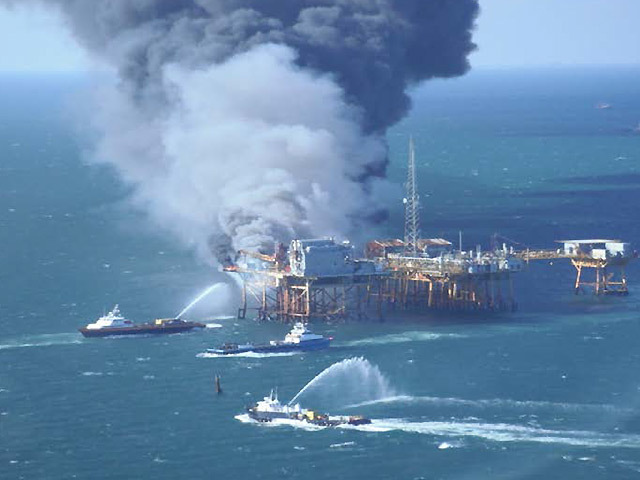
The head of the USA’s offshore safety watchdog has warned too many accidents are still happening despite new regulation aimed at lessening risk to workers.
Brian Salerno, director of the Bureau of Safety and Environmental Enforcement, called for oil companies to work together on improving safety procedures and preventing potential disasters in the future.
His comments come just days before the fourth anniversary of the Deepwater Horizon disaster, which killed 11 people and caused billions of dollars of damage to the Gulf of Mexico.
The bureau, founded three years ago in the wake of the disaster, was set up to promote safety among offshore workers and protect the environment from future industry accidents.
But Salerno said that, despite new safety rules launched last April, too many accidents were still happening in US waters, putting workers at risk.
“There are still significant gaps and we are still having too many incidents that are endangering the lives of workers and the environment,” he said.
“We have responded to a number of incidents over the past year or so where lives have been lost, workers have been injured, the environment has been polluted, due to a failure to follow basic safety practices. Safety Culture is still very much company specific at this point.”
The safety and environmental management systems rules (SEMS II) were introduced in April 2013 to give offshore workers in the USA extra support over reporting and and preventing unsafe working conditions.
Increased focus has been put on safety in offshore projects – particularly in the Gulf of Mexico – after the Macondo blast and the Black Elk explosion in 2012.
Two former BP bosses will face involuntary manslaughter charges over the Deepwater Horizon disaster later this year.
Salerno, speaking at a safety forum in Texas, said companies still needed to improve their attitude to safety as the Bureau looked to revise its rules even further.
“Many contractors are simply not familiar with safety procedures on a facility, nor is the operator making much of an effort to ensure safety consistency,” he said.
“This has had some horrifying results, and remains an area of concern for us as we consider the future of the SEMS program.
“So my message on safety culture is that we are on the right track, but we are not there yet.
“We will be looking for ideas on how to advance safety. In this I believe we have common ground. As we all have seen, a major disaster offshore is bad for the entire industry.
“If we can forestall such catastrophes from occurring through increased awareness and sharing of safety information, wouldn’t we all be better off?”

